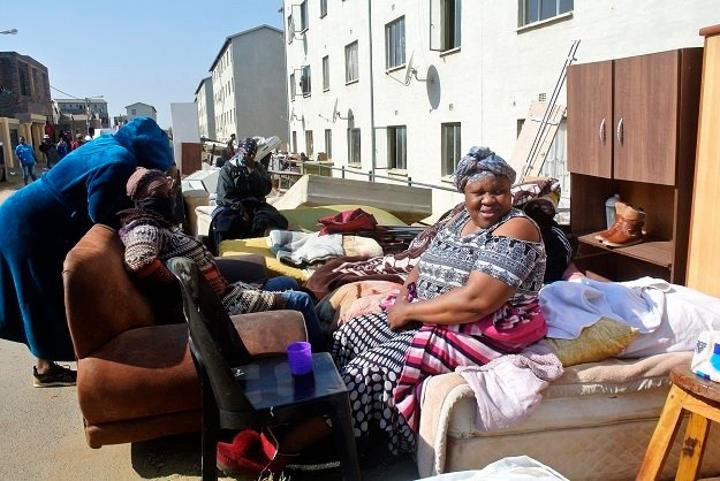Africa-Press – South-Africa. Private security companies cannot conduct random searches, the SA Human Rights Commission hearings into evictions processes was told on Friday.
“If you provide a security service in the country, then you are bound by PSiRA registration,” said Private Security Industry Regulatory Authority senior manager for law enforcement Jan Sambo.
The conduct of private security is often under the spotlight as they are often the first on a scene of an incident. In Phoenix, KwaZulu-Natal, some private security companies were berated for blocking off roads and searching people and vehicles during the July unrest of 2021.
It is also common to be searched on entering many of South Africa’s courts to prevent contraband from being smuggled in. Some court security guards go as far as checking inside beanies and asking people to take their shoes off for a search.
Anatomy of a violent July: Data mapping shows unrest was part of tactical plan to shut down SA
PSiRA Western Cape manager Marius Bruwer explained that security guards’ functions were clearly defined. They could only perform the tasks if they had been trained and accredited.
“There is no general power that allows a security officer to search a person,” he said.
“The person in the street doing searches cannot do that at all.”
Bruwer said even putting handcuffs on a person suspected of shoplifting or stealing could only be done by a guard accredited to do that.
They were testifying at the SAHRC’s commission of inquiry into eviction processes. The commission wanted to hear from PSiRA on the governance of the private security firms and guards who are commissioned to carry out the evictions.
The police themselves do not carry out evictions or shack demolitions, so municipalities commission companies like the Red Ants to do it for them after obtaining a court order.
However, there have been questions over whether the companies sometimes exceed their powers.
Sambo said about 10 000 security companies were registered with PSiRA, and they and their guards had to abide by a code of conduct and legal regulations.
Police, intelligence failed to stop July unrest – but executive also to blame, report finds
They are bound by the Private Security Industry Regulation Act of 2001, and violations could lead to a fine of up to R1 million. They perform various functions – from guarding houses and cash to protecting national key points, national parks, government offices and municipalities.
One thing they cannot do as PSiRA members is “crowd control” because PSiRA does not offer specific accreditation for this.
The use of security companies at times during the Fees Must Fall protests raised the legality of whether they were allowed to chase students on campuses and apprehend them.
PSiRA does, however, offer “event management” accreditation for concerts and sports events.
Security guards are graded according to their training, and their use of firearms is also aligned with what grade they have attained. Officers in higher grades may sometimes carry semi-automatic weapons if they are escorting high-risk assets. The weapons must be registered with the Central Firearm Registry.
The requirements for security guards to register with PSiRA include completion of accredited courses and criminal record clearance checks for certain categories of crime such as assault with intent to do grievous bodily harm, murder, rape, as well as fraud and gender based-violence-related convictions.
They must also be a South African national or have South African residency.
Asylum seekers and refugees were permitted to work as security guards in PSiRA’s predecessor, the Security Officer’s Board. Where there are cases of fraud regarding asylum seekers and refugees, it is usually an officer falsifying the credentials of an SOB-registered security guard.
The law also allows security guards and companies to apply to the minister of police for an exemption to any of the requirements.
For More News And Analysis About South-Africa Follow Africa-Press






